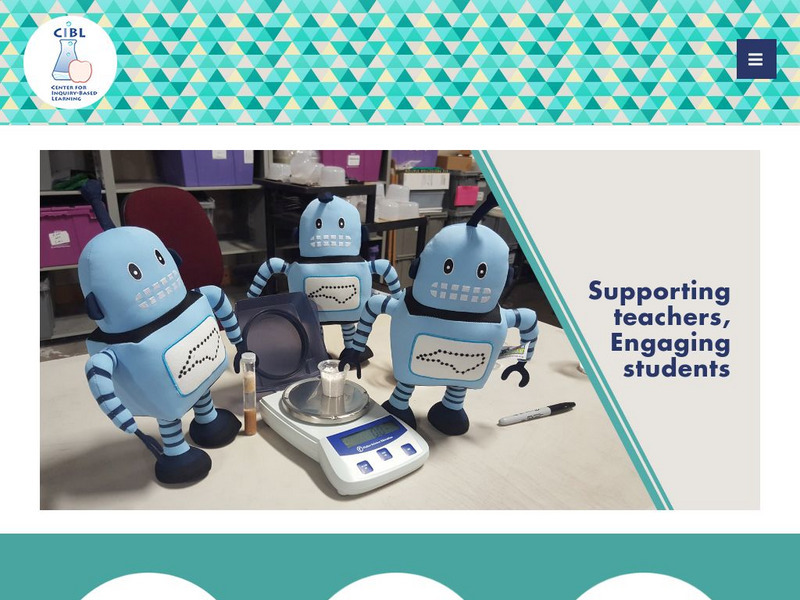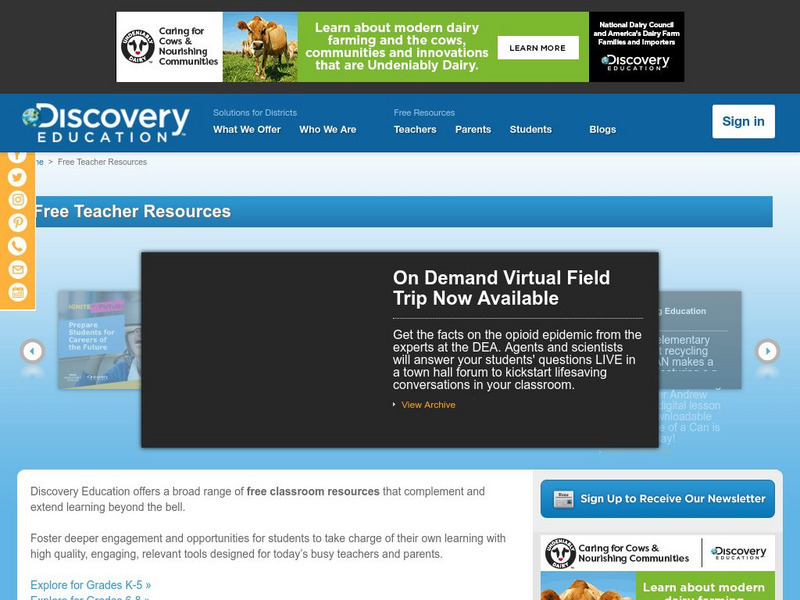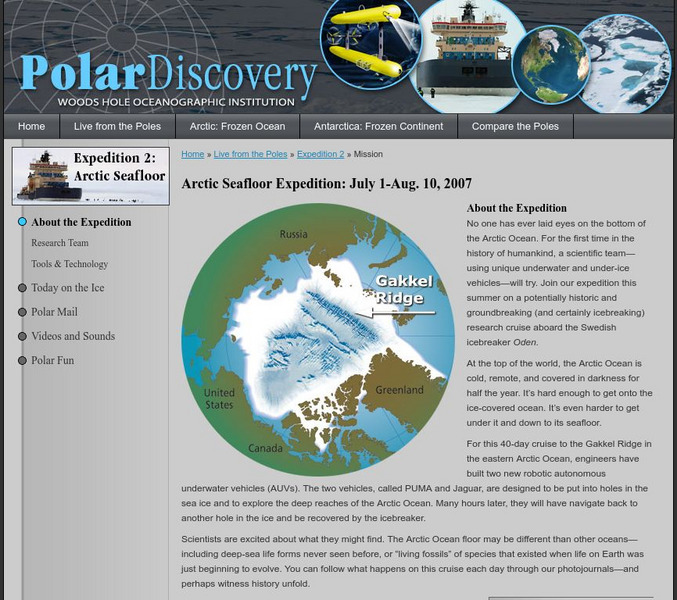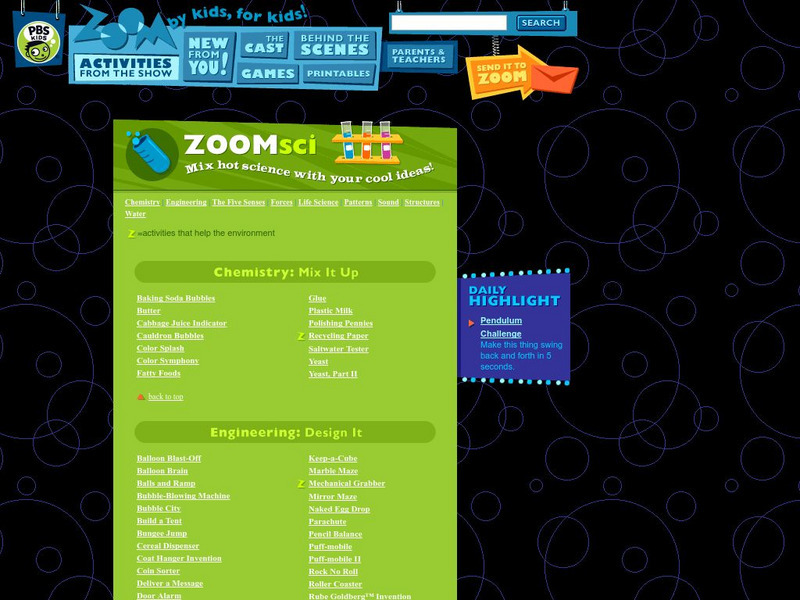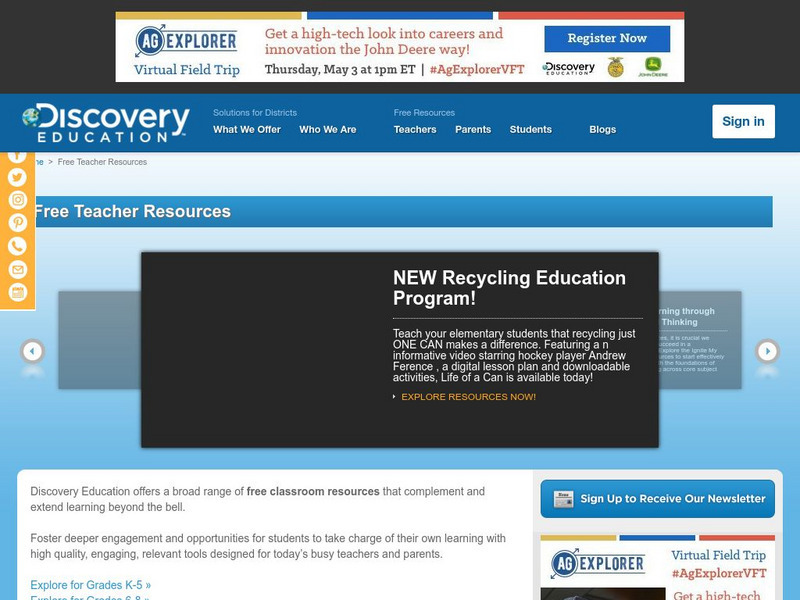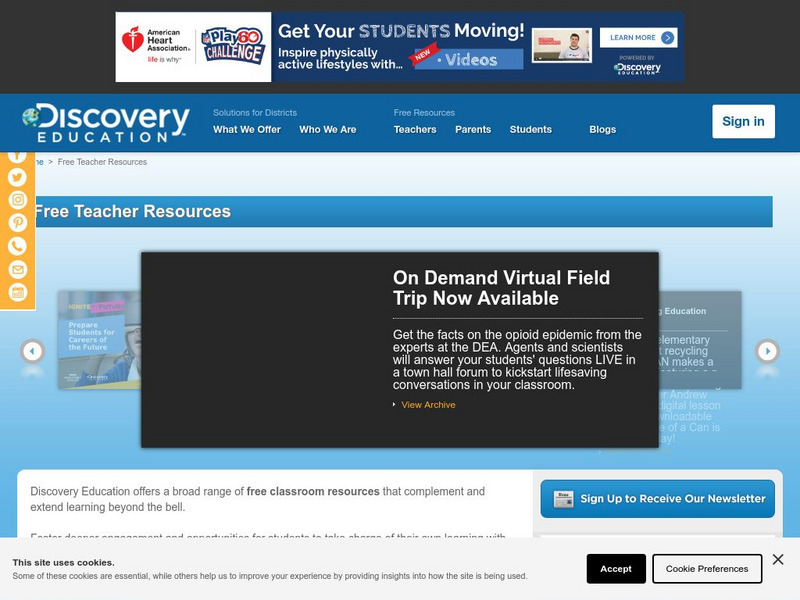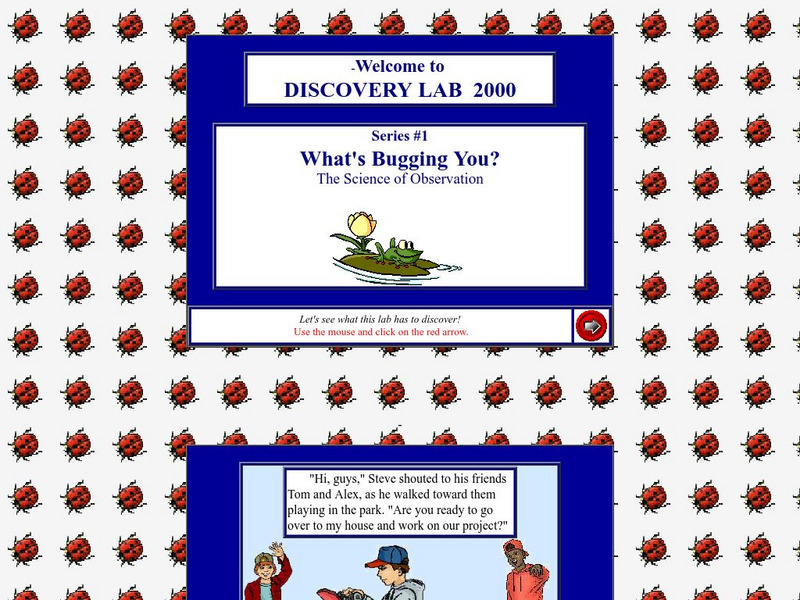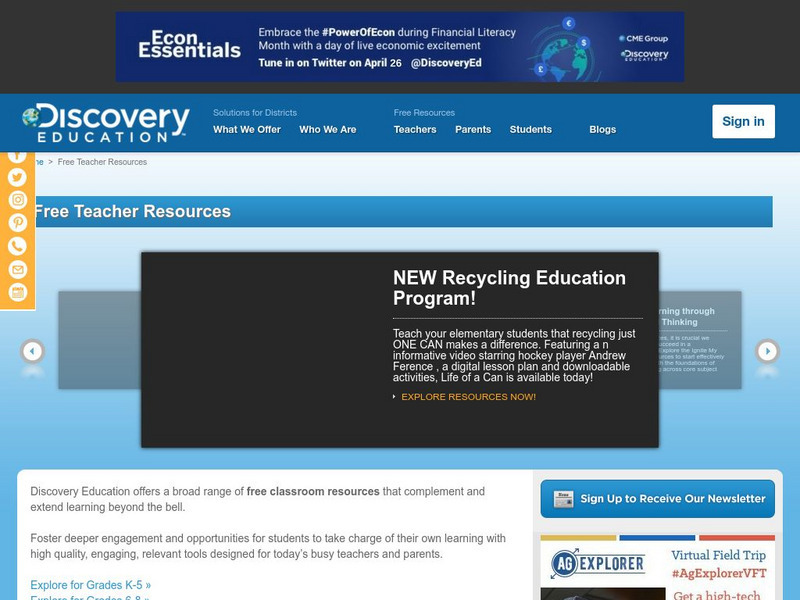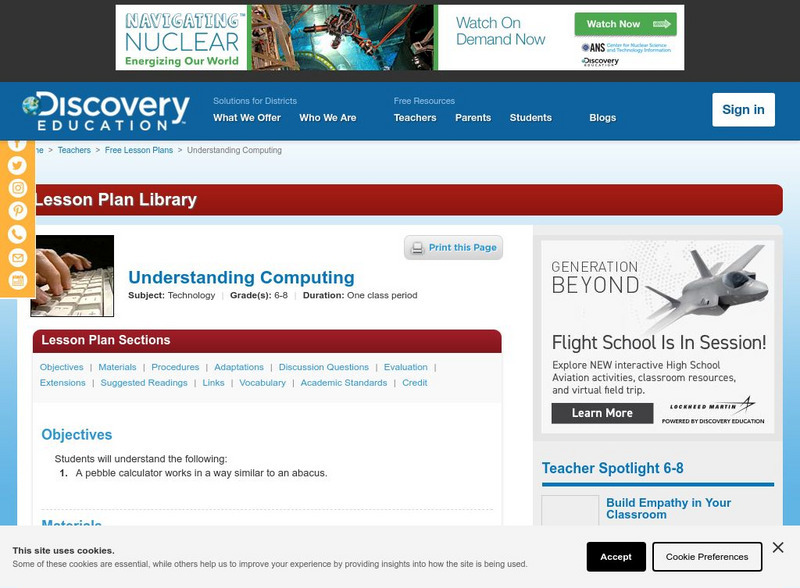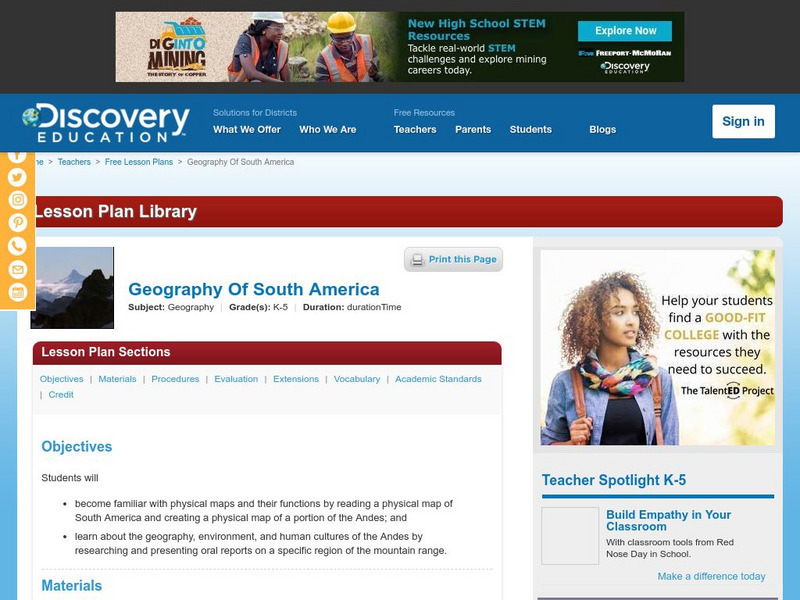Other
Duke: Center for Inquiry Based Learning
Duke University has established the Center for Inquiry-Based Learning. It serves to enhance math and science lessons. Click on Resources for good examples of Inquiry-based lesson plans.
Seeker
Seeker: Week of 3 17 14: Active Volcanoes Revealed on Venus
Active volcanoes have been discovered on the planet Venus. Learn what this means about our understanding of this planet.
NASA
Dawn Mission: Dawn Classrooms: The History and Discovery of Asteroids
Student groups explore scientific breakthroughs and the development of technologies that eventually led to asteroid discovery aboard the Dawn space mission. Learning module components include jigsaw reading, model building, math...
Georgia Department of Education
Ga Virtual Learning: American Literature: Postmodernism: "Everyday Use"
This lesson focuses on Alice Walker and her short story "Everyday Use," which explores the generation gap between a mother and daughter and the relationship among a mother and her two daughters. Links are provided to the text of the...
Discovery Education
Discovery Education: Science Fair Central: Choose a Science Fair Project Idea
Great science fair project ideas! Learn how to ask a testable question and choose from elementary, middle school, or high school science fair project ideas. View examples of testable questions, and see what is changed, what stays the...
Discovery Education
Discovery Education: Science Fair Central: Choose a Project Type Investigation
Discover how to approach a scientific question, and learn eight steps students will perform in doing so. Offers suggestions on how to ask a testable question as well as several examples.
Discovery Education
Discovery Education: Science Fair Central: Practice Investigation Virtual Labs
Two virtual labs offer practice for creating your own or science project: "How Does Your Garden Grow" and "Critters!" Learn how investigations are conducted from the first step to the finished product.
Woods Hole Oceanographic Institution
Polar Discovery: Arctic Seafloor Expedition: July 1 Aug. 10, 2007
This polar expedition to study the Arctic seafloor took place in 2007, but you can still enjoy following the footsteps of these scientists. The goal of the expedition was to see if there were active hydrothermal vents on the ocean...
PBS
Pbs Kids Zoom: Chemistry Activities
Cool science site provides plenty of fun and engaging chemistry activities for young scientists to learn something new and have some fun at the same time.
Khan Academy
Khan Academy: Learn: The Truth About Your Brain
Forty years ago, we seemed to know more about the Moon than we did about how our own brains work. Not anymore! We're excited to share some new discoveries with you. So, how does the brain work?
Discovery Education
Discovery Education: The Phenomenon of Sound Waves
A lab activity on sound waves is presented on this website. Students will learn about sound waves produced by different objects in this activity. There are also a set of discussion questions and two other variations of the lab exercise.
Discovery Education
Discovery Education: Physical Science: Gravity Gets You Down
In this lesson, students make predictions about falling objects of different sizes and masses to learn about gravity and air resistance. Includes audio vocabulary list and extension activities.
Discovery Education
Discovery Education: Making Math Real
Parents strive to open the doors for their children into the vast halls of learning. How to start! Family-friendly ways to incorporate math concepts at home are given here.
Discovery Education
Discovery Education: Understanding Tsunamis
Come and learn more about the devastating effects of tsunamis. This site features video segments revealing the devastation tsunamis can cause and how tsunamis are formed.
Beacon Learning Center
Beacon Learning Center: What's Buggin' You?
Become a scientist for the day and use the science of observation to join forces with Professor Mill Ennium in the Discovery Lab. Help them to uncover the identity of the mystery bug.
Discovery Education
Discovery Education: Exploring Nature
This article gives some excellent ways we can engage our children in exploring and learning about nature.
Discovery Education
Discovery Education: Understanding Computing
This lesson plan provides activities to demonstrate how "A pebble calculator works in a way similar to an abacus," which will allow learners to increase their understanding of how computers work. The lesson plan also provides discussion...
Discovery Education
Discovery Education: Geography of South America
Introduce your students to South America with this physical map activity. The resource contains a detailed lesson plan to help students learn about the geography, people, and environment of South America.
Children's Discovery Museum
Children's Discovery Museum of San Jose: Color Mixing for the Senses
Learn all about color mixing and how layering primary colors can create a brand new color in this fun activity.
Cold Spring Harbor Laboratory
Dolan Dna Learning Center: Nobel Laureate Barbara Mc Clintock
The interactive activity examines the discoveries of Barbara McClintock on the correlation between chromosome behavior and breeding experiments in corn.
Cold Spring Harbor Laboratory
Dolan Dna Learning Center: Nobel Laureate Thomas Hunt Morgan
The interactive activity examines the discoveries of genetics and chromosomal inheritance of Thomas Hunt Morgan.
PBS
Pbs Learning Media: Cave Formation: Biogeochemical Cycles
This video segment adapted from NOVA chronicles the discoveries that led to a radical new theory in which living organisms, not just geological processes, play an active role in cave formation. [5:42]
Other
National Geographic: Jason Learning
[Free Registration/Login Required] Educators and students will enjoy visiting the JASON Project, a NASA and National Geographic cooperation which works to provide accurate and intriguing scientific knowledge for students.
University of Illinois
University of Illinois Urbana Champaign: Chickscope: The Journey Begins
Journey with the chicken egg, from formation to hatching, and learn about its embryology.
